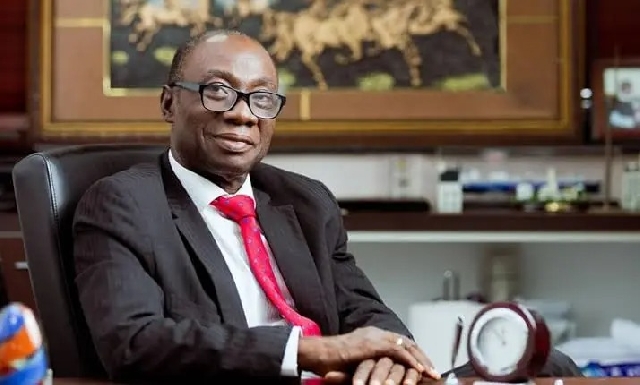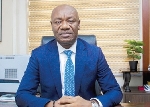Weak corporate governance crippling local banks-DR Kwabena Donkor
 Dr Kwabena Donkor
Dr Kwabena Donkor
Former Minister of Power and governance consultant, Dr. Kwabena Donkor, has issued a strong warning that a longstanding culture of weak corporate governance is undermining indigenous Ghanaian businesses—especially local banks.
Speaking to The High Street Journal, Dr. Donkor said governance failures have become deeply rooted across both state-owned enterprises and private indigenous companies, stressing that Ghanaian-owned banks remain the worst affected.
According to him, the repeated collapse or stagnation of Ghanaian businesses stems largely from one core problem: appointments based on loyalty instead of competence.
Dr. Donkor noted that many Ghanaian entrepreneurs continue to appoint children, relatives, and close friends as directors even when they lack the capacity or knowledge to carry out the role.
This practice, he emphasised, violates the Companies Act, 2019 (Act 992), which outlines clear expectations and responsibilities for company directors.
“At the heart of our business failures—whether public or private—is poor corporate governance.
Absolutely poor corporate governance,” he lamented.
He added that too many directors in the private sector do not understand the functions the law assigns to them, leaving companies exposed to weak leadership and poor decision-making.
Dr. Donkor further argued that Ghana faces a cultural challenge of being “uncomfortable with knowledge.”
He suggested that many business owners deliberately avoid appointing highly qualified individuals because they fear opposing views or losing personal control.
“We seem to be a people afraid of knowledge,” he said.
“Appointments are made that border on mediocrity, simply because some owners want to maintain unnecessary personal control.”
He warned that this has resulted in corporate boards—particularly within local banks—being unable to interpret financial statements or provide meaningful oversight, leading to weakened institutions and eventual collapse.
The former minister expressed disappointment that the Ghana Institute of Directors, despite its influence and mandate, has been largely silent on the matter.
He urged the Institute to become more active in championing public education, pushing for reforms, and sparking national dialogue on how directors are appointed and trained.
“Unfortunately, the Institute of Directors, of which I’m a fellow, has been too quiet.
They must strengthen their public advocacy and bring mainstream corporate governance issues to the fore,” he charged.
Pointing to examples from Namibia, Dr. Donkor revealed that director appointments in some countries are regulated, with individuals required to pass corporate governance examinations before being considered for state board roles.
He believes Ghana must adopt a similar model that prioritises:
· Competence over loyalty
· A clear understanding of directors’ duties
· Performance-based remuneration
· A national pool of trained and qualified board members
Without such reforms, he warned, Ghana will continue its cycle of business failure and institutional stagnation.
Trending Business

Gov't has shown sincerity in reviving economy in 2026 budget-GFL
02:18
Building cost inflation drops to 9.7% as Ghana records 5 consecutive monthly declines – GSS
17:19
ADB hosts customer appreciation breakfast, reaffirms commitment to superior service delivery
14:34
GIPC, Canadian High Commission explore ways to deepen trade and investment ties
14:12
Lands Minister inaugurates committee to select investors for VALCO modernisation and alumina refinery project
11:41
Ato Forson uncovers GHS13bn in dubious payment claims after ordering sweeping audit
06:21
Weak corporate governance crippling local banks-DR Kwabena Donkor
18:48
Oil Palm Development Policy: Ensure smallholder farmers are fully integrated-GFL to gov't
14:33
All MDAs to go cashless by 2026 as CAGD ends manual cheques
11:32
2024 was the worst economic crisis in Ghana’s history – Kwakye Ofosu
10:22




